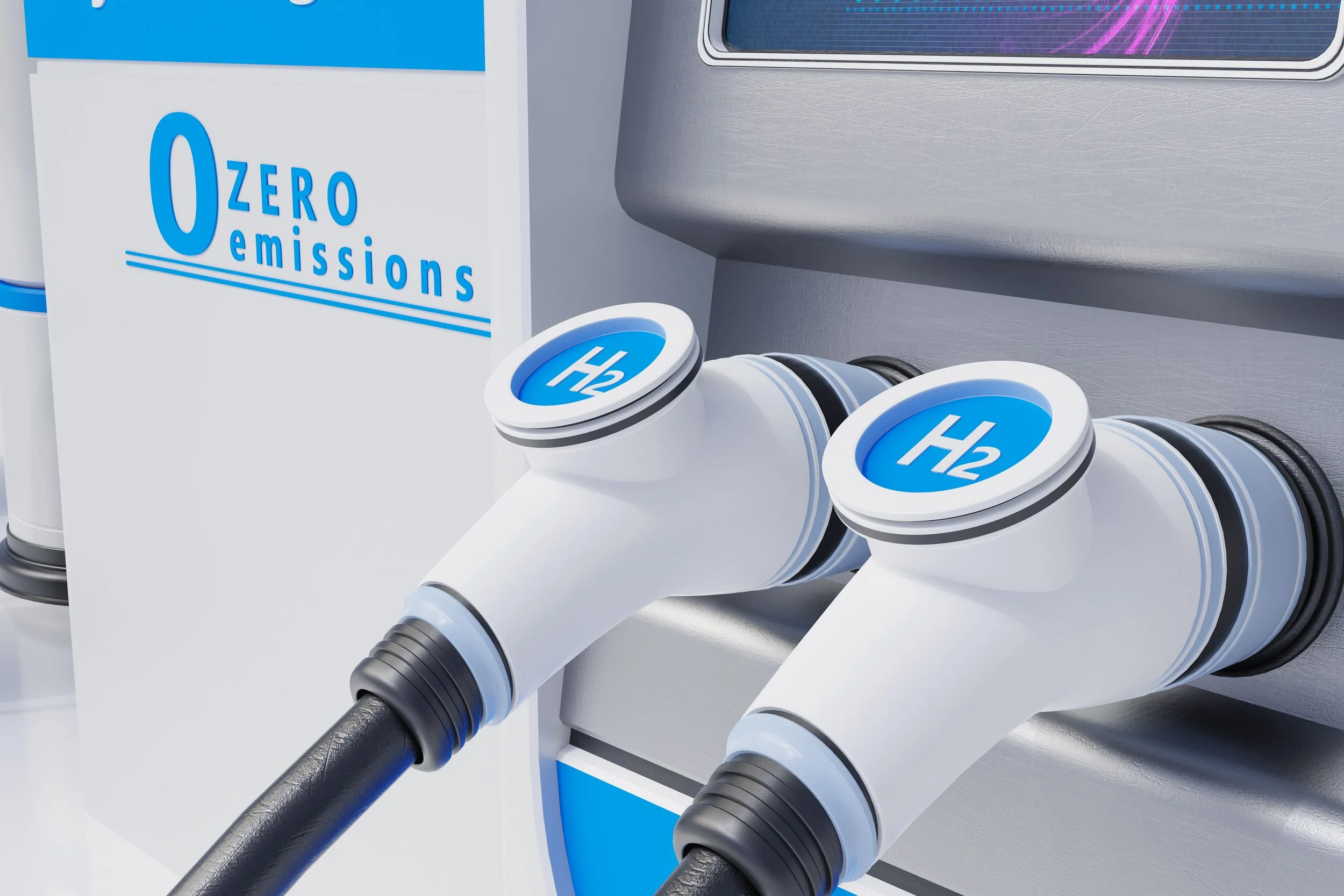Hydrogen in Motion: Portable Refuelling and Renewable Production Set the Stage for the Next Energy Chapter
Hydrogen in Motion
At ZeroMission, we’re watching hydrogen’s evolution with growing optimism, and this week, two major milestones underline just how far and fast this transition is accelerating across Europe.
From ULEMCo’s first commercial sale of its HyTANKa mobile hydrogen refuelling unit in the UK to Lhyfe’s inauguration of Germany’s largest renewable hydrogen production site, these breakthroughs are reshaping what’s possible in hydrogen logistics, supply, and deployment.
Making Hydrogen as Simple as Diesel
In Liverpool, ULEMCo’s new HyTANKa system has officially gone from concept to commercial reality, with T&M Bowser Solutions becoming the first buyer.
This ADR-approved mobile hydrogen bowser can deliver hydrogen directly to vehicles and machinery at up to 350 bar, offering a practical, portable refuelling solution for hard-to-decarbonise sectors like construction and heavy-duty operations.
Developed under the UK Department for Energy Security and Net Zero’s ‘Element 1’ Red Diesel Replacement project, HyTANKa is designed to make hydrogen fuelling as intuitive as diesel. It can be driven to hydrogen filling facilities and then deployed to remote worksites.
“This collaboration demonstrates how traditional fuel service providers can help their customers adapt and switch to clean energy,” said Amanda Lyne, Managing Director at ULEMCo.
For T&M Bowser Solutions, the system fits perfectly into its on-site fuelling model, helping customers maintain productivity while cutting emissions. As Director Lewis Dicker put it:
“HyTANKa enables a significant reduction in CO₂ and emissions from construction equipment, supporting wider air quality improvements and net zero goals.”
At ZeroMission, we see this as a critical enabler: bringing hydrogen to the fleet rather than the fleet to hydrogen. It’s a model that could unlock adoption across construction, utilities, and other sectors where infrastructure still lags.
From the Site to the Source: Lhyfe Powers Up Germany’s Largest Renewable Hydrogen Plant
In Schwäbisch Gmünd, Baden-Württemberg, French hydrogen pioneer Lhyfe has just inaugurated a 10 MW renewable hydrogen plant capable of producing up to four tonnes per day.
Built entirely on renewable power through long-term PPAs, the site marks Germany’s largest commercial renewable hydrogen facility to date. Its modular, containerised design handles every stage from water treatment and electrolysis to compression and truck loading, offering a scalable blueprint for Europe’s hydrogen backbone.
At full capacity, the plant can fuel 100 hydrogen trucks per day, providing clean energy for both mobility and industrial applications. It is already contracted to supply H2 MOBILITY, Germany’s largest refuelling network, and will feed local industry zones such as H2-Aspen.
Crucially, Lhyfe’s site has achieved RFNBO certification, confirming 100% renewable hydrogen under EU sustainability and traceability standards. This gives customers the eligibility and confidence to participate in European incentive schemes.
“This is an important step forward in ramping up hydrogen technology,” said Winfried Kretschmann, Minister-President of Baden-Württemberg. “Pioneers like Lhyfe are paving the way to a sustainable and climate-neutral future.”
A Connected Hydrogen Future
The combination of mobile refuelling (HyTANKa) and renewable production (Lhyfe) illustrates how the hydrogen economy is maturing, from production to point-of-use.
These are the missing links that will make hydrogen a practical, scalable, and carbon-free energy vector for logistics, construction, and public fleets.
At ZeroMission, we believe this hybrid approach, pairing on-demand hydrogen logistics with certified renewable supply, will define the next stage of FleetOps Intelligence for mixed-fuel operations.
Hydrogen is no longer an experiment. It’s an ecosystem in motion.

